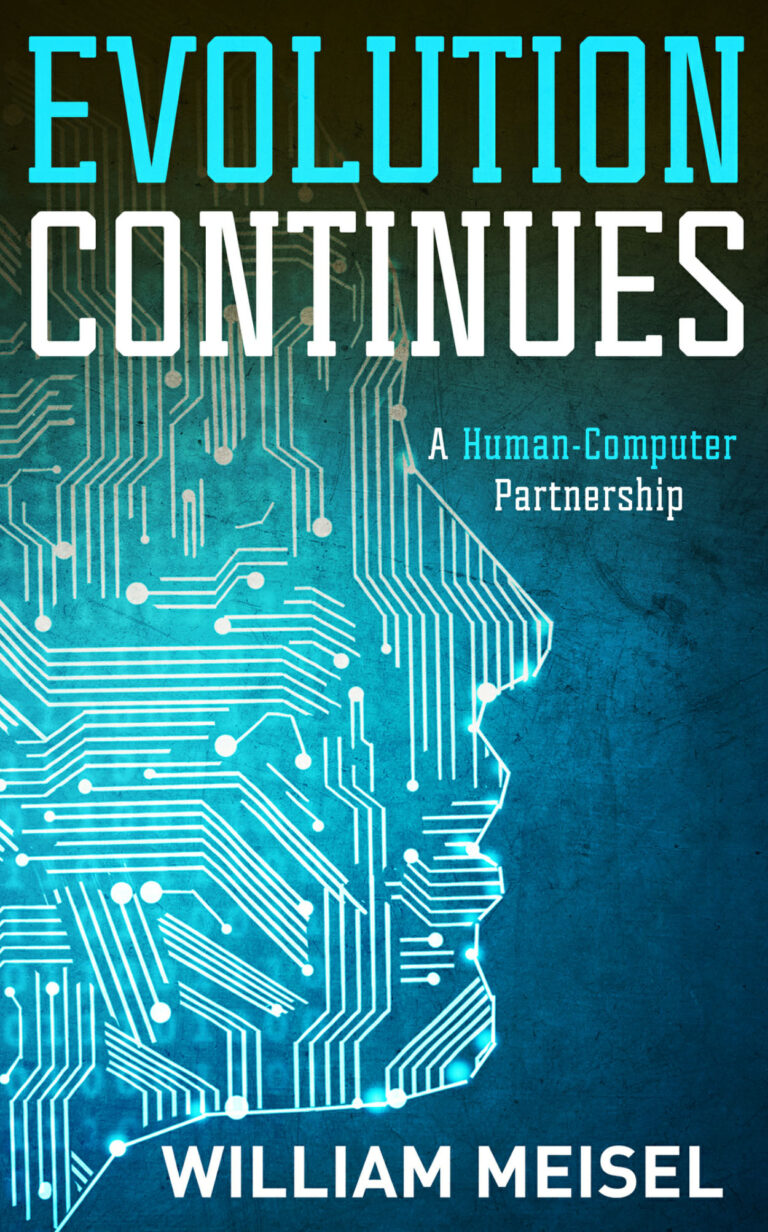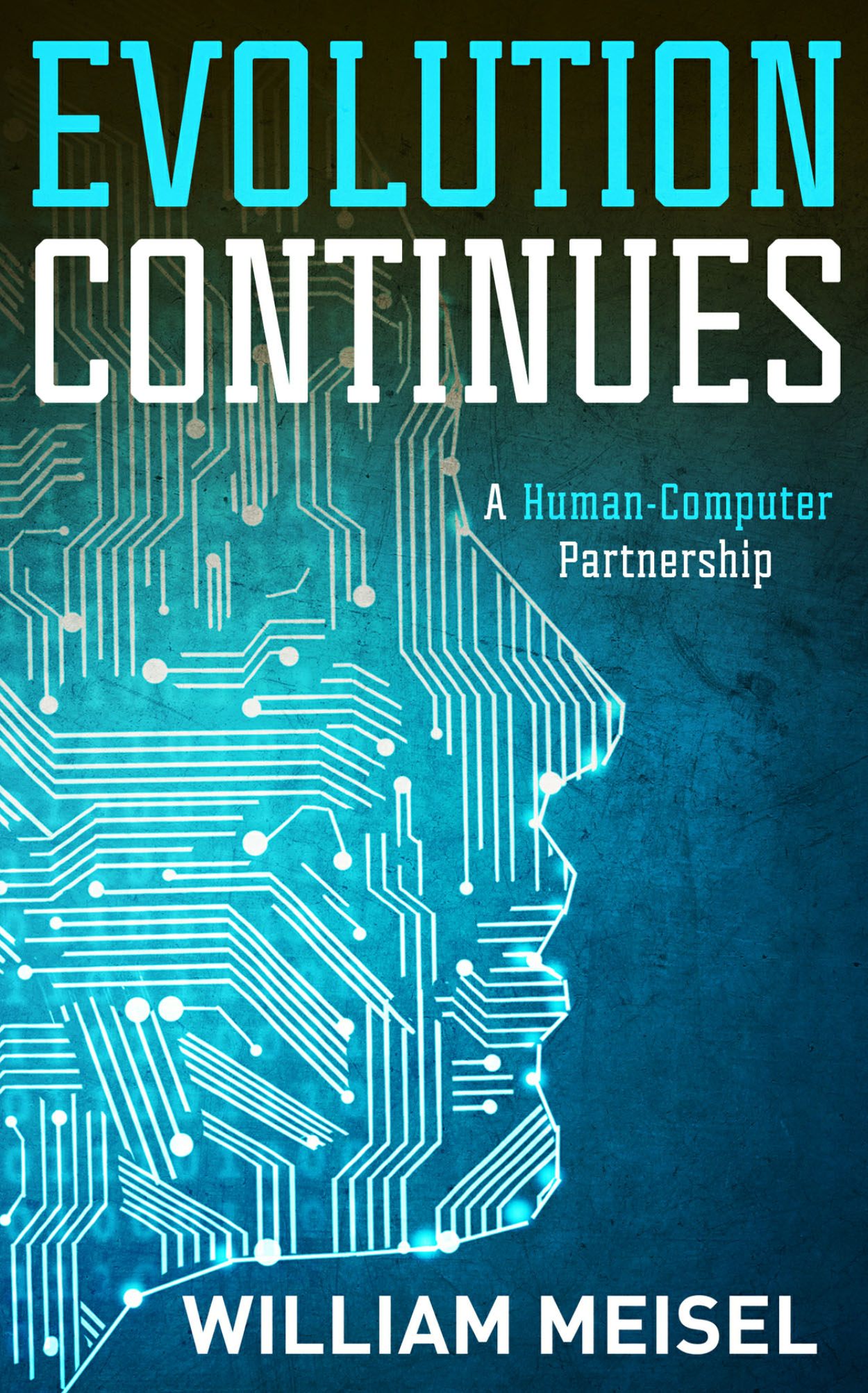Written by one of the developers of speech recognition software, William Meisel’s EVOLUTION CONTINUES: A Human-Computer Partnership, provides an excellent overview of the impact of computer technology on virtually every facet of human life. Meisel has something substantive to say on artificial intelligence (AI), robots, digital assistants, and even more esoteric topics like consciousness and free will. His take on computers is almost relentlessly positive, but he makes strong arguments for all his opinions. Take, for example the fear generated in sci-fi movies like Terminator and The Matrix and TV series like Person of Interest: that super-intelligent computers will exterminate or dominate humanity. Meisel makes a good argument that, were such computers ever to be developed (which he thinks unlikely), they would probably see human beings as benefactors and work for our benefit.
Meisel thesis is that computers, in fact, represent the next stage in human evolution. “Humankind has always extended the ability of the human body and brain with tools,” Meisel writes. “…The continuing exponential increase in computer power and its increasingly direct connection with humanity is a paradigm shift.” He admits, however, that this new tool represents a paradigm shift, arguing that the exponential increase in computer power accessible to individuals and businesses has passed a critical rate of growth that is leading to fundamental change.” But he holds that computers are already part of being human, given their fundamental role in social media and the economy. “A child growing up with a digital assistant might consider the digital assistant part of them, part of what constitutes ‘self’,” he speculates. “If so, computers may change the nature of self.”
The question is what directions this nascent process will take. Meisel asks: “Will the evolution in computer power change what it means to be human? How will it change society and economics? Is this something new or just a continuation of long-term trends in humanity’s history?” While his views on computing are well-informed, his research on other issues tends to betray his biases. For example, he cites a study that purported to show that subsidies to poor mothers improved their babies’ cognitive functions. But that study was debunked within days of being published. Meisel makes similarly narrow statements on mRNA vaccines, COVID life expectancy, Big Tech censorship, inequality in capitalism, and cash injections equating with economic growth.
William Meisel’s EVOLUTION CONTINUES: A Human-Computer Partnership, presents an optimistic view of the role of computers in humanity’s future and is a refreshing change from the doomsday scenarios typically pushed by media and popular culture.
~Kevin Baldeosingh for IndieReader


